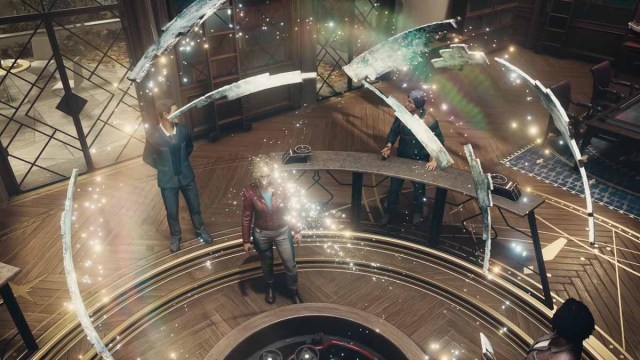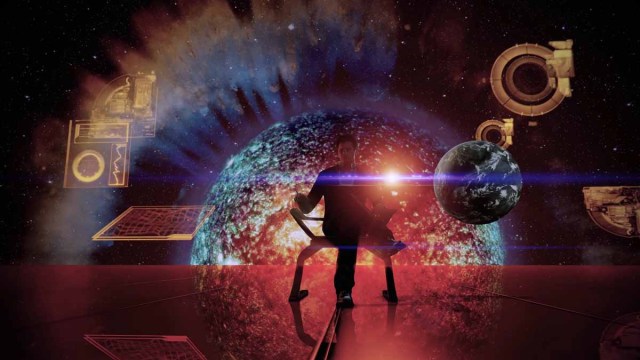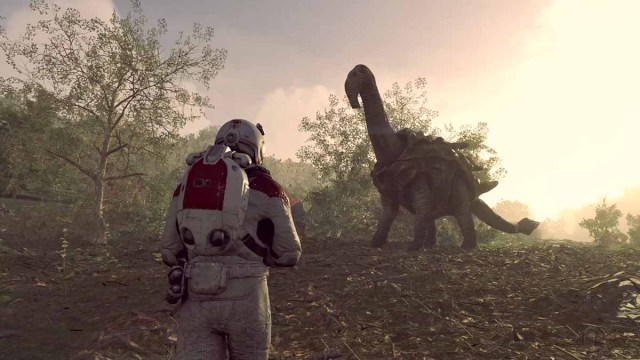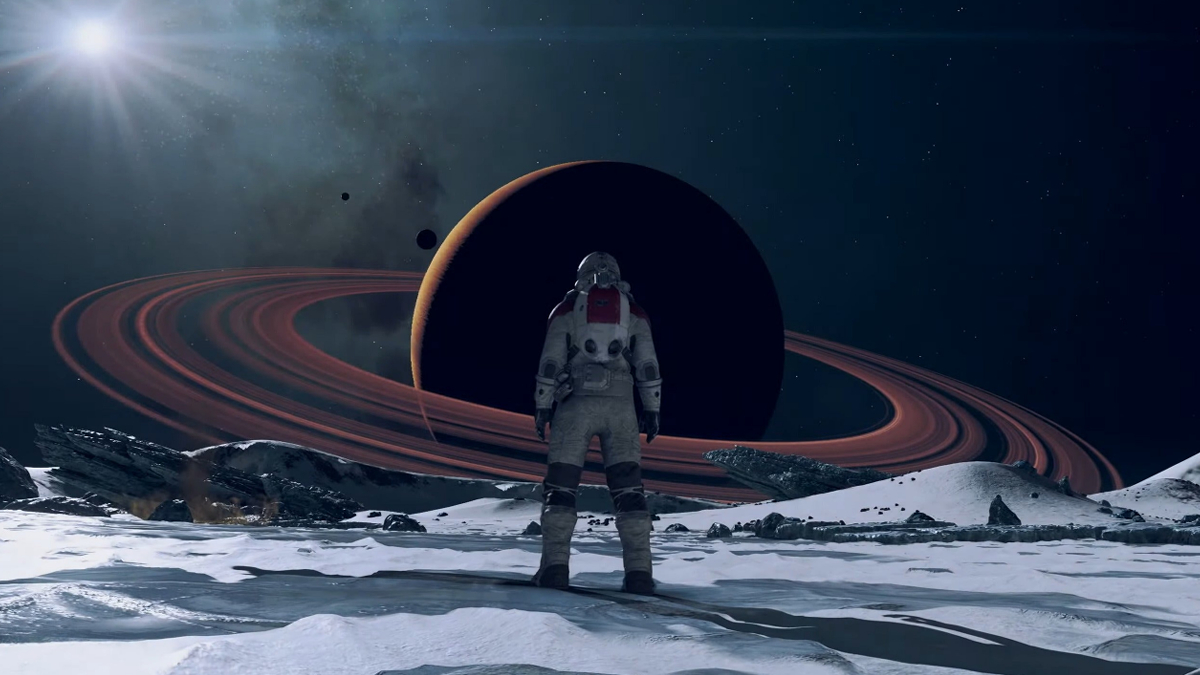There’s nothing more humbling than thinking about the vast expanse of the cosmos.
To do so is to confront the stark reality that all of us are living out our lives on what astronomer Carl Sagan famously described as a “Pale Blue Dot”. It’s something that the very best works of science fiction have done repeatedly across film and literature, but arguably there has never been a video game that could be included in that pantheon of greats.
Fortunately, Bethesda Game Studios’ Starfield is perhaps the most likely candidate yet to inspire in its players that specific sense of awe that has, until this point, eluded the medium.
“They Should Have Sent a Poet”
But what, exactly, is this feeling that I’m trying to describe? Well, it comes in many forms, but it’s one that any fan of science fiction will recognize. It’s the moment in the story that takes you from the outer reaches of space and slingshots you right back down to Earth.
The movie or book might have been sold to you on the promise of high adventure or grand visual spectacle, but in this scene or passage the true purpose of the piece becomes clear. The message isn’t always the same, but it’s usually a variant on one or all of the following: stop war, look after your planet, cherish the simple fact of your own existence.
The whiplash effect created by this existential realization is frequently enough to bring you to tears.

Sagan’s musings on the Pale Blue Dot photo – taken 3.7 billion miles away from Earth by NASA, showing our distant planet as nothing more than a pixel on a blanket of nothingness – captures all of those feelings. It makes us feel small and unimportant, yet at the same time, there’s a sense of reassurance to be gained from this cosmic perspective.
And, in 1997, Sagan’s novel Contact was adapted for film. Upon being hurtled across space, Jodie Foster’s awed astronaut proclaims, “They should have sent a poet”. It’s the kind of understated moment that any one of us might feel at confronting all that lies beyond our little corner of the universe.
Without getting into deep spoiler territory, you can probably identify scenes like this from other sci-fi films you’ve seen. Sometimes, as in 2001: A Space Odyssey and Interstellar, they can operate on a brain-bending, almost pseudo-religious level, whereas in the likes of Close Encounters of the Third Kind and the cult classic Silent Running, their message is delivered in a more direct, personal way.
Where Video Games Fall Short
As anybody who’s willing to take the medium at all seriously can attest, video games are more than capable of making you feel a sense of awe, and there have certainly been a fair share of sci-fi games that evoked plenty of emotion from me. Those aren’t, however, the same emotions that I felt watching the films I listed above.
When it comes to epic sci-fi narratives in video games, the first thing that will likely come to most people’s minds is the Mass Effect trilogy. Bioware, some of the best storytellers in the industry, created a space-faring classic full of characters that people loved and cared about.

For all its expert craftsmanship though, those games like so many others drew their inspiration primarily from space operas such as Star Wars, Star Trek, and Dune. We share a human connection to the characters in them, but they’re too fantastical to trigger any deeper existential feelings (although it should be noted that a handful of Star Trek’s 700+ episodes do manage it).
Great though they may be, all too often the plot can be boiled down to a simple battle between the good guy humans versus the bad guy aliens.
Starfield’s Great Unknown
But Starfield, with its NASA punk aesthetic, is more grounded. While humans have been able to colonize the stars, there are, at the start of the game at least, no other intelligent species with whom the human species are friends or foes.
In the gameplay trailer for Starfield, set against a backdrop of mysterious planets and a rousing score, a voice-over states: “Humanity has always hunted for knowledge in the unknown”. The unknown is very much the status of Starfield’s overall narrative, even mere days before its release. All we know is that, at the heart of the story is Constellation, an organization whose discovery of an alien artifact sets you off on your mission to make contact.
It’s pretty standard issue sci-fi plotting, but one which could lead the game in two very different directions.

Typically, video game history dictates that the artifact will lead us to the discovery of a hostile alien race. Consequently, we’ll get to unload heaps of ammo into hordes of little green men. However, for Starfield’s big reveal to be a simple descent into bombastic action would be a supreme failing of the potential this game could have to affect people in a more poignant way.
Look, we know this game will have plenty of action. We know there will be rogue factions and space pirates and plenty of ugly-looking creatures to shoot and loot. All that should hopefully play great. However, the trailers, hype, and secrecy surrounding Starfield have me hopeful Bethesda could be aspiring to something more elevated.
This is first and foremost a roleplaying game – you are the character you design and play. Imagine if all those hours spent peeling back the game’s mysteries led to a reveal that affected not just the character on the screen, but you specifically.
It’s hard for us mere mortals to imagine how this might actually play out in the game. It’s inevitable that we will, at some point in the story, find out the truth behind the alien relics, but what happens then?
Perhaps it will lead to one of those famous Bethesda step-out moments that reveals the already huge galaxy in a new and previously unthinkable way. One which makes us rethink not just the game we’ve been playing, but also the life we’ve been leading outside of it.
It’s a big ask. But then again, Starfield is a big game. Is it too much to expect that it does something so small as make me reevaluate my place in the universe?
